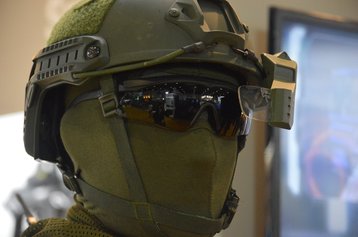The US Army has delayed the multi-billions dollar roll-out of thousands of custom Microsoft HoloLens.
Earlier this year Microsoft won a $22 billion deal to deliver 120,000 custom HoloLens kits to soldiers. As part of the contract, Microsoft will provide cloud and Edge services to support the augmented reality kit.
In 2018, Microsoft signed a $480 million contract with the US military as part of its Integrated Visual Augmentation System (IVAS) project with goal to "increase lethality by enhancing the ability to detect, decide and engage before the enemy."
In March 2021, the military decided to take the project from prototyping to production signed a follow up deal that Microsoft said could be worth up to $22 billion. The deal is set to last five years with an option for a further five year extension.
However, after nearly a year of testing, the Army has announced a pushback on the widespread roll-out of the hardware.
"The IVAS headset, based on HoloLens and augmented by Microsoft Azure cloud services, delivers a platform that will keep soldiers safer and make them more effective," said the Microsoft technical fellow Alex Kipman at the time.
This week the US Military announced it was delaying the roll-out of the project, saying it shifting IVAS Operational Test and fielding to a date “later in FY22.”
“The Army conducted an Adversarial Electronic Warfare and Cybersecurity Test in September 2021, and plans to execute testing regularly throughout FY22,” it said in a statement. The Army said it had conducted ‘Adversarial Electronic Warfare & Cybersecurity Tests’ in September 2021.
The delay will help the Army enhance the IVAS technology platform, and ensure “Soldiers achieve overmatch in Multi Domain Operations.”
The statement also reaffirmed that the Army intends to continue developing the technology and is not abandoning the project. According to a project timeline the Army envisions the first unit fully equipped with IVAS by September 2022.
“The Army is fully committed to its partnership with Microsoft to advance specific technologies to meet operational requirements and maximize warfighter impact.”
As well as equipping soldiers, Microsoft and Amazon have both won more than $50 million in contracts related to military drone project Maven, after rival Google dropped out due to staff protests.




